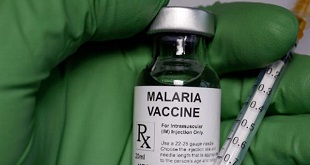
Freedom House rates countries as free, partly free, or not free. It rates two general parameters: people’s access to political rights and their access to civil liberties.
Political rights are grouped into three subcategories: Electoral Processes, Political Pluralism and Participation, and Functioning of Government. The civil liberties are grouped into four subcategories: Freedom of Expression and Belief, Associational and Organizational Rights, Rule of Law, and Personal Autonomy and Individual Rights.
The Freedom in the World report is based on scores about countries by analysts and expert advisers from the academic, think tank, and human rights communities. The 2021 edition involved over 125 analysts, and nearly 40 advisers. The analysts prepare draft reports and scores using a broad range of sources, including news articles, academic analyses, and reports from nongovernmental organisations, individual professional contacts, and on-the-ground research.
The scores are based on questions such as: Was the current head of government or other chief national authority elected through free and fair elections? Did independent, established, and reputable national and/or international election monitoring organisations judge the most recent election for head of government to have met democratic standards?, Could all candidates make speeches, hold public meetings, and enjoy fair or proportionate media access throughout the campaign, free of intimidation?. Other questions are: Is there a realistic opportunity for the opposition to increase its support or gain power through elections? Are safeguards against official corruption strong and effective? Does the government operate with openness and transparency? Are there free and independent media? Are peaceful protests, particularly those of a political nature, banned or severely restricted? Is the judiciary subject to interference from the executive branch of government or from other political, economic, or religious influences? Are judges appointed and dismissed in a fair and unbiased manner?
Negative trends
The proportion of Not Free countries is now the highest it has been in the past 15 years, the report says. Less than 20% of the world’s population now lives in a free country, the smallest proportion since 1995.
Syria, Eritrea, Central Africa Republic, North Korea, China, Tibet, Syria, Somalia, South Sudan are among the most not free countries in the world. Sweden, Norway, Finland, Canada, Denmark, Australia, Switzerland, the Netherlands, and Luxembourg are among the freest in the world. Others are Germany, Portugal, Uruguay, the UK, Tuvalu, and Taiwan.
Although the negative trend of its decline has been evident for about 15 years, the report says 2020 witnessed an unprecedented deepening of the long democratic recession. Countries experiencing deterioration outnumbered those with improvements by the largest margin recorded since the negative trend began in 2006.
“The ongoing decline has given rise to claims of democracy’s inherent inferiority,” the report says. Among those pushing this line, according to the report are, China and Russia and antidemocratic actors within democratic states who see an opportunity to consolidate power.
“The enemies of freedom have pushed the false narrative that democracy is in decline because it is incapable of addressing people’s needs,” the report says, “In fact, democracy is in decline because its most prominent exemplars are not doing enough to protect it.”
The expansion of authoritarian rule, combined with the fading and inconsistent presence of major democracies on the international stage, has had tangible effects on human life and security, including the frequent resort to military force to resolve political disputes, the report says.
But democracy is remarkably resilient, says the report, it has proven its ability to rebound from repeated blows. It points at Malawi as a prime example of democracy on rebound in 2020.
Opposition presidential candidate Lazarus Chakwera won the June rerun vote by a comfortable margin, proving that independent institutions can hold abuse of power in check.
While Malawi is a country of 19 million people, the story of its election rerun has wider implications, as courts in other African states have asserted their independence in recent years.
“The nullification of a flawed election—for only the second time in the continent’s history—will not go unnoticed,” the report says.
The report says the parlous state of US democracy was conspicuous in the early days of 2021 as an insurrectionist mob, egged on by the words of outgoing president Donald Trump and his refusal to admit defeat in the November election, stormed the Capitol building and temporarily disrupted Congress’s final certification of the vote.
“Everyone benefits when the United States serves as a positive model, and the country itself reaps ample returns from a more democratic world,” the report says.
It adds: “Only a serious and sustained reform effort can repair the damage done during the Trump era to the perception and reality of basic rights and freedoms in the United States”.
****
 The Independent Uganda: You get the Truth we Pay the Price
The Independent Uganda: You get the Truth we Pay the Price


